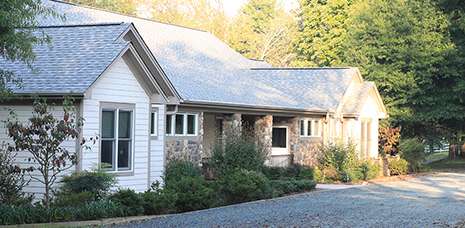“[Our son] gained a self-confidence that has stayed with him since he left; this has enabled him to succeed at a mainstream college prep school. Another wonderful result is that he learned to treat people with respect. He continues to do that consistently with us and others, and we believe it has become one of his core life values. In summary, sending (our son) to TKS was, we believe, the best decision we have ever made on his behalf, and the effects have been lasting”
— A Parent from Texas
The Student Experience
The residential program at Keswick School is a relationship-based model. Students not only build strong relationships with their counselors, but also with their peers. Through the group experience of living in a dorm, students learn values of mutual respect and cooperation.
As students develop a sense of belonging in residential life, they grow in confidence in other areas of the program. Keswick School students reside in one of four living areas based on age, social/physical maturation, and long-term goals.
The Madison and Jefferson dormitories house eight to nine students in private and semi-private bedrooms, balanced to optimize self-regulation and therapeutic interactions. Throughout the building, interior spaces have been designed to control visual and auditory stimulation, facilitate individual and social development, encourage organizational skills, and support the growth of personal responsibility and pride in one’s living environment.
The Monroe dormitory houses twelve students and the Yellow House Independent Living Program houses six.

Students experience daily support, nurturing, positive and constructive feedback, and a structured daily schedule. Students feel organized with the consistency and predictability of their time at Keswick School. With an atmosphere of trust and community themes such as respect and belonging, students develop a sense of safety. The safety and support they experience then allows them to participate throughout the program, eventually trying new things.
Building off of students’ strengths and introducing them to new things develops a stronger self-identity in each student and begins to restructure their self-esteem. This is seen on a daily basis as students encourage one another with positive praise and recognition in the community. As students become connected to the community, they are able to collaborate with residential staff in order to problem-solve their emotions and needs.
“[Our son] gained a self-confidence that has stayed with him since he left; this has enabled him to succeed at a mainstream college prep school. Another wonderful result is that he learned to treat people with respect. He continues to do that consistently with us and others, and we believe it has become one of his core life values. In summary, sending (our son) to TKS was, we believe, the best decision we have ever made on his behalf, and the effects have been lasting”